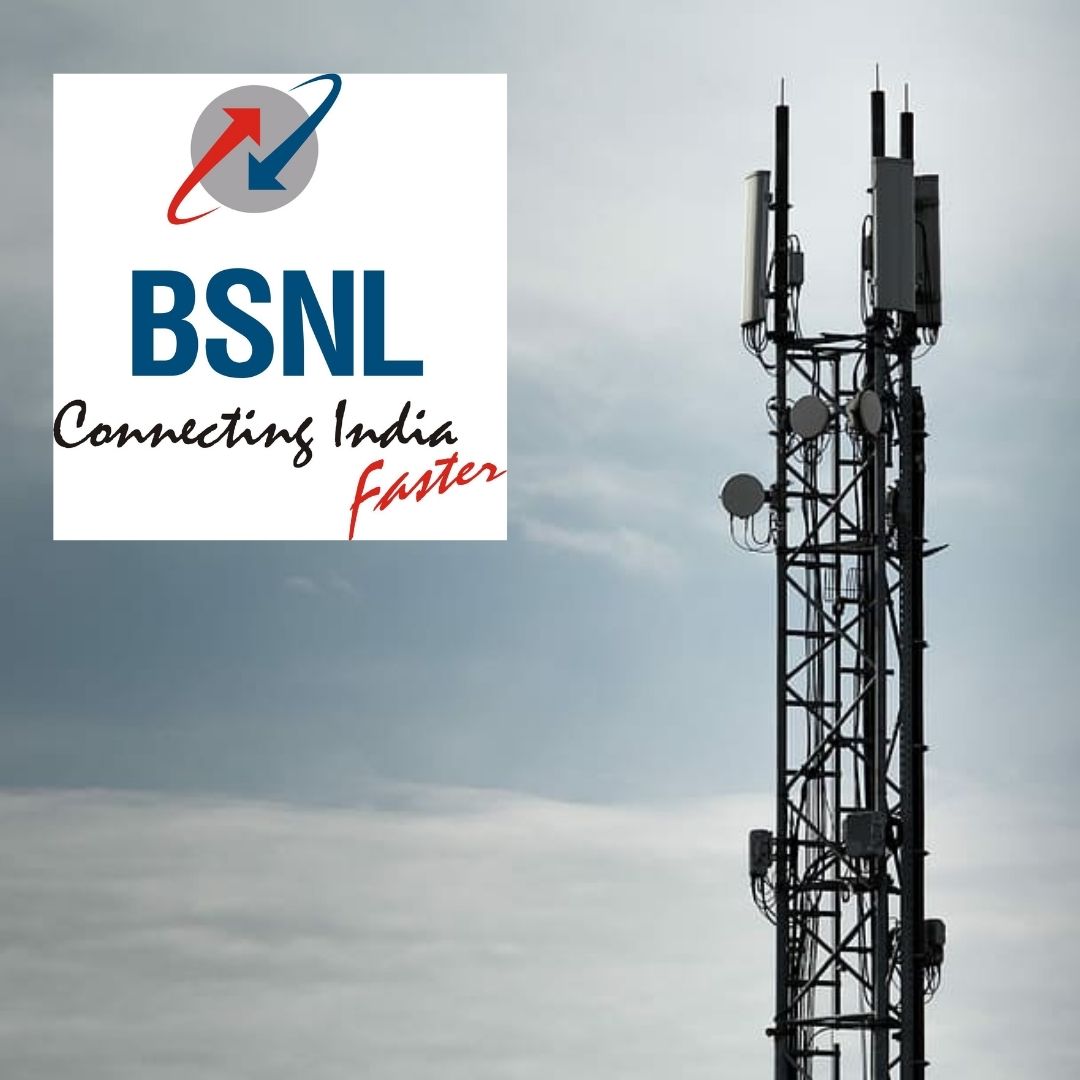
Image Credit: Pexels, Facebook (BSNL India)
What Lead To The Downward Spiral Of BSNL: Read To Know
Writer: Ratika Rana
Her primary objective is to inform, promote, educate and cultivate readers through writing.
India, 25 Oct 2021 11:49 AM GMT
Editor : Ankita Singh |
A literature lover who likes delving deeper into a wide range of societal issues and expresses her opinions about the same. Keeps looking for best-read recommendations while enjoying her coffee and tea.
Creatives : Ratika Rana
Her primary objective is to inform, promote, educate and cultivate readers through writing.
As of June 30, 2021, the private sector withheld 89.95 per cent of the market share among wireless subscribers, whereas the government-owned BSNL and MTNL held only 10.5 per cent.
From 2000 to 2010, the telecom sector boasted of tough competition, and both private and public service providers were on their toes. The early 2000s saw both the rise and eventual fall of Bharat Sanchar Nigam Limited. The public sector undertaking (PSU) was launched under the government's wing in October 2000, and it experienced its first loss in the financial year of 2009-2010.
What was once considered India's most reliable telecom brand faced the magnanimous pressure of competing with other brands like Reliance and Airtel. Companies like Hutch, Vodafone, Idea, Airtel, Aircel, Reliance were competing with government-owned entities like BSNL and MTNL.
Sought A Relief Package Of ₹40,000 Crores
Gone are the days when mobiles with cameras and the internet were a luxury. When a family had just one mobile phone in such vintage times, BSNL was eyeing a customer base of 4 million users. In the years to come, the conditions for the PSU had only gotten worse. In the financial year ending 2003, BSNL incurred a profit of ₹1,444 crores, which was a massive drop of 76 per cent from the profit of the preceding year.
In 2021, the company sought a relief package of ₹40,000 crores from the government. About half of the amount from the relief package was sought for a sovereign guarantee to kick off their short-term debt. The remaining amount of ₹20,000 crores would be used if the company set up 1 lakh node B (mobile network) mobile sites.
BSNL was once known for providing telecom services for commercially non-viable areas. In 2019, Financial Express had reported that the government might consider a permanent closure for the company amid rising concerns. The Former Director of Finance for BSNL had said, "It is very easy for the government to say that it will close the company. The company has given huge returns to the government. The kind of investments that were made in the company, it has paid many times over". From 2000 to 2008, the former director said, the company had paid the government many times over.
Reasons For The Downfall
Several telecom experts blame the downward spiral of the PSU on massive red tape and slow-paced decision making. As recent as 2019, BSNL was the most reliable fixed-line service provider but could not compete with its agile private competitors in mobile networks.
The high maintenance cost for its employees ran into 55 to 60 per cent of the company's expenditure, which was further complemented by lower tariffs and heightened competition from other emerging players. Repeated and unchecked government interference and stiff opposition from unions to sell a stake of the PSUs can also be zeroed down as the causes for the sorry state of affairs for BSNL.
Mukesh Ambani-led Reliance grabbed the lion's share in the telecom sector with the launch of Jio. The move was so impactful that other services providers like Vodafone, Idea and the like dwindled off the radar. The vast shift to Jio was a massive setback to BSNL and other companies in the telecom sector.
Small network providers just vanished, and others fell under deep debt. Vodafone and Idea merged to counterbalance their losses, whereas Airtel managed to stay afloat. However, none of the companies is even a match to Reliance under the current circumstances.
What Is The Future Of Telecom Industry?
Presently, Jio is the topmost service provider with 436.69 million subscribers, whereas Airtel has 193.74 million users, VI has 121.41 million, and BSNL is struggling to retain 16.67 million subscribers. However, the question lies if it is feasible for the Indian consumer to depend only on private companies for something as essential as the internet and a stable mobile connection.
Since the times have changed, and it is unavoidable for one and all to carry out their day-to-day tasks without a mobile phone, it might be a better option for the government to declare the service 'essential' and not keep it as a luxury anymore. The market does not become a monopoly or a duopoly, and the consumer can get the best services at the most affordable prices.
Also Read: Union Ministry Seeks Decriminalizing 'Small Quantities' Of Drugs In Possession
 All section
All section














